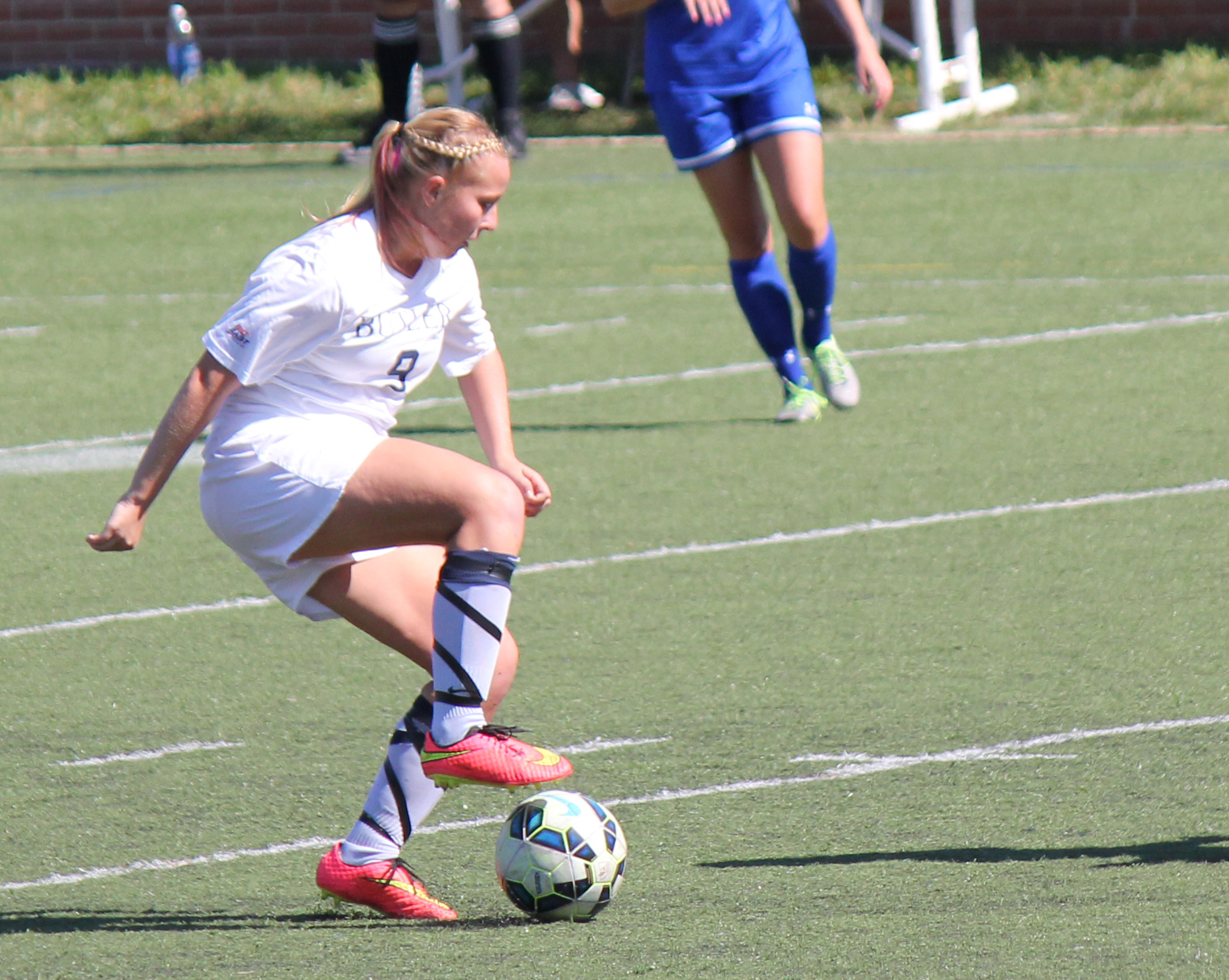JOE HASENSTAB | ASSISTANT SPORTS EDITOR
Upperclassmen women soccer players Sophia Maccagnone and Caroline Kowal know firsthand the challenges student-athletes face when it comes to balancing sports and classes.
The women’s soccer team usually holds practice from six to about eight p.m. This time is good for the players so they can make it to the practice at the same time without missing for classes. However, it also has its downsides, especially when it comes to finding time for dinner.
“Having late practices is definitely hard because after all that work your body is craving something but it’s late so you don’t want to eat too much,” Maccagnone, a senior, said.
Usually athletes need to maintain better diets than your average college student because of the strain they put on their bodies day in and day out. Kowal, a senior, emphasized the importance of eating well.
“For the most part it is just staying ahead of it,” Kowal said, “and making sure there’s fresh produce and fresh food in my house so that on nights where I don’t get home until nine o’clock and I’m starving that I don’t go out and get McDonalds or Qdoba, which I love, but probably isn’t the proper fuel for me for the next day.”
Soccer is a sport that can make players work up quite a sweat from all of the running required. That means it is very important for the members of the women’s soccer team to stay hydrated.
“I don’t think you’d ever see part of our team walking around without our Gatorade bottles filled with water,” Maccagnone said.
Another thing some players have to worry about is either getting to practice early or staying late to get treatment from the medical staff for nagging injuries. Others need time for ice baths to help prevent muscle soreness. All of this adds to the time they spend trying to remain healthy throughout the season.
After making sure they are taking care of their bodies, players must transition from their responsibilities as a member of the team to their responsibilities as a student.
Players have to work around their practice and game schedule to get their schoolwork done too.
“When it gets time crunched for homework or for meetings and stuff like that you just got to do what you can,” Maccagnone said, “and if that means going to a meeting after practice then you just got to do it and deal with it.”
One of the toughest challenges that comes along with being a student athlete is keeping up with schoolwork when you are missing lots of your classes due to games.
“With away games and away weekends we’ll be gone for five days at a time and we’ll go to two days of school and I think that can be a struggle for some people,” Kowal said, “but the biggest thing to know, like with the groceries and eating well, is just staying on top of things and making sure we get things done ahead of time.”
Kowal also said that despite how challenging it can be to balance out her schedule, being a student athlete has taught her valuable time management skills that she believes will help her after graduation.

